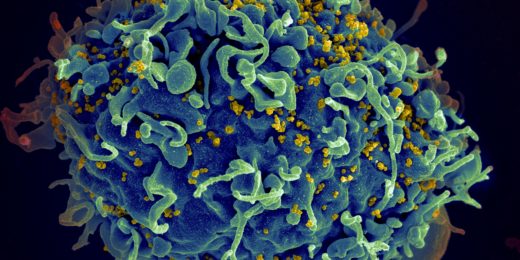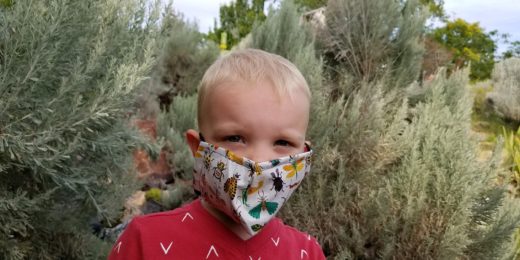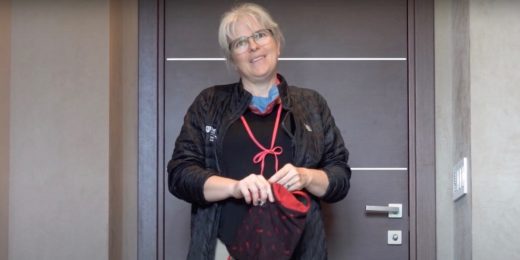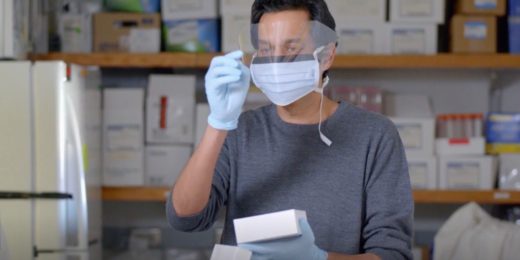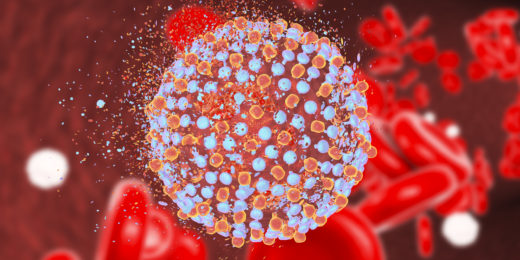Combining science with social and political initiatives responsive to public concerns could improve adherence to universal masking, writes Dean Lloyd Minor.
Category: Preventive Medicine
Enlisting the entire immune system strengthens potency of HIV vaccines in development
Two recent Stanford-led studies show the value of tweaking vaccines to enlist the entire immune system — not just part of it — in preventing HIV infection.
How to get young kids to wear a mask during the COVID-19 pandemic
Stanford experts provide tips for helping young children learn to wear a cloth mask to help prevent the spread of COVID-19.
Life After Shelter In Place: Part II
Dean Lloyd Minor of Stanford Medicine describes the key elements that must be in place for society to reopen safely during the COVID-19 pandemic.
Stanford surgeon repurposed her suturing skills to sew hundreds of masks
Stanford pediatric surgeon Janey Pratt converted her dining room to a factory, in order to produce cloth masks to protect people from COVID-19 transmission.
How to stay safe as COVID-19 orders are relaxed
Stanford Health Care chief of staff Megan Mahoney, MD, answers questions about how to avoid the spread of COVID-19 as restrictions are loosened.
Life After Shelter In Place: Part I
As COVID-19 restrictions begin to lift, Dean Lloyd Minor discusses the importance of safely re-engaging patients in preventive care.
Stanford biochemist works with gamers to develop COVID-19 vaccine
A NOVA special featured Rhiju Das and the OpenVaccine project, in which gamers help scientists find an RNA molecule configuration for a COVID-19 vaccine.
Hepatitis C: All adults in U.S. — under 80 — should be tested
Hepatitis C has become so widespread that experts are calling on doctors to screen all adults 18 to 79, even those with no known risk factors or symptoms.
Is a rubber band the secret to running faster?
“Exotendon,” a device that is clipped between a runner’s shoes and links them together, may be the secret to running faster.
Fighting skin cancer with Facebook, YouTube and…rap?
Stanford researcher Eleni Linos turned to social media to see if it was a more effective way to spread information about skin cancer and tanning to youth.
Aspirin for prevention: Know your risk of heart attack or stroke
In this installment of "Aspirin for prevention," physician-researcher Randall Stafford provides tips to calculate the risk of heart disease or stroke, to inform decisions about taking aspirin preventatively.
Rethinking aspirin for prevention: New studies suggest more limited use
A team of Stanford physicians explains why research has found that taking aspirin to prevent cardiovascular disease may be riskier than previously thought.
“Born to be bad” — some cancers spread before detection
Many metastatic colorectal cancers appear "born to be bad," spreading to other organs before any diagnosis has been made, say Stanford researchers.
The future of genomics: A podcast featuring Stanford geneticists
Stanford geneticists discuss the future of genomics, including the importance of studying diverse populations for medical research.
Proceed with caution before changing colonoscopy recommendations, Stanford physician urges
A push to personalize medicine can backfire when it comes to screening for colorectal cancer, says a Stanford gastroenterologist.



